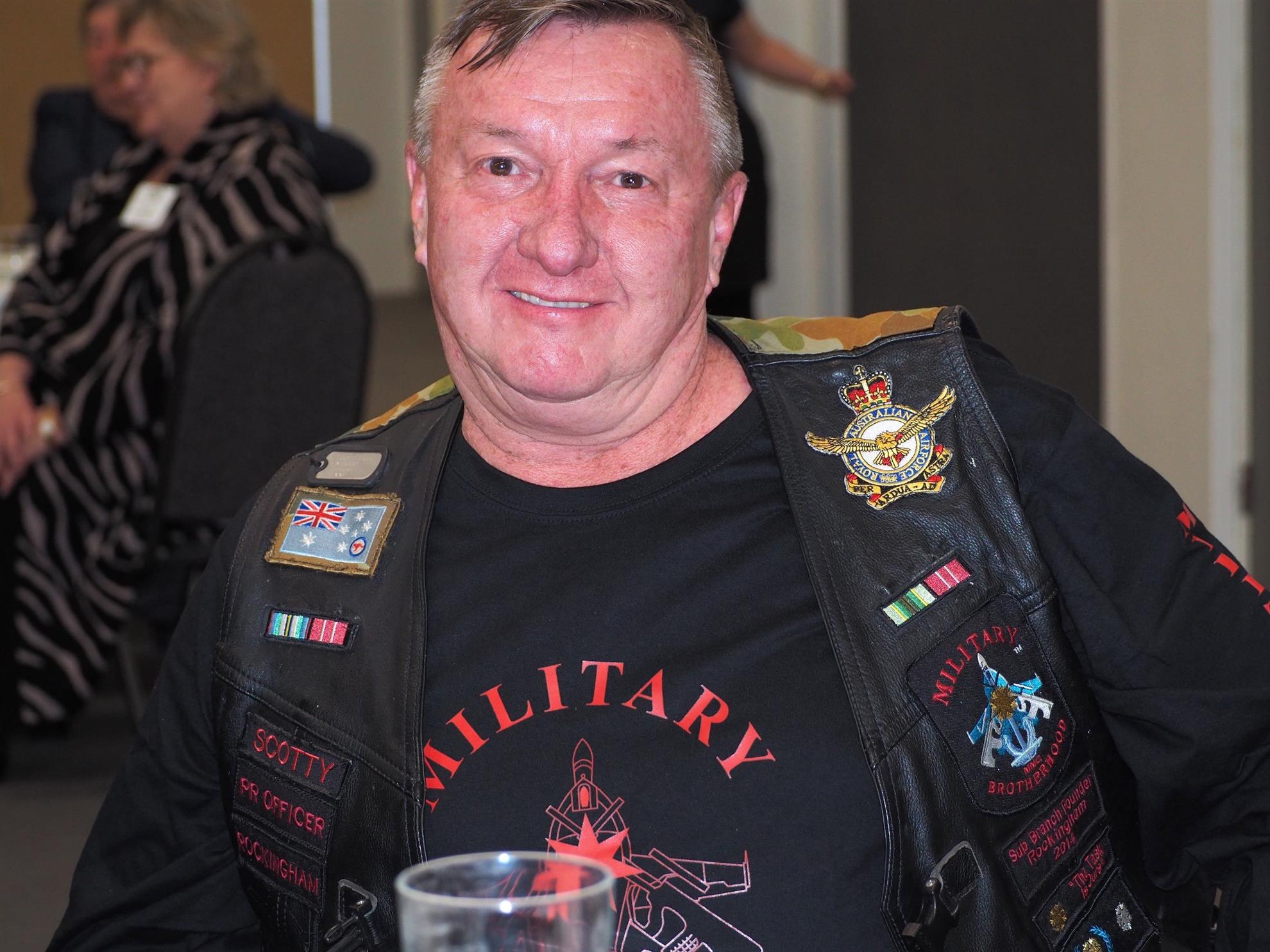
Paul Hage
THREE bikers in heavy leathers were guests at last week’s Palm Beach Rotary Club meeting. Tania McDonald, president of the Military Brotherhood Motorcycle Club’s Rockingham sub-branch, was accompanied by Gary Scott and Paul Hage. They came to tell the club about their mission to support former members of all the Australian Defence Forces – army, navy, and air force.
They particularly focus on mental health. More Australian veterans have lost their lives to suicide than were killed on active duty since ADF personnel were deployed to Afghanistan in 2001. According to government data, more than 500 Australian veterans have died by suicide since 2001.
By comparison, 41 Australian troops died during the 20-year conflict in Afghanistan. In April, Prime Minister Scott Morrison bowed to public pressure and announced a Royal Commission to examine suicides among serving and former military personnel.
Rockingham's Military Brotherhood sub-branch has about 20 members, Tania told the Rotary club. It meets on Friday nights at the Point Peron RSL and caters for those suffering from post-traumatic stress disorder — welfare checks are important.
Rotarian Lindsay Hemy met them there and invited them to address the club. A veteran needs a motorbike to be a member and motorcycle runs are held on the second Sunday of every month, Tania said. Members raise their own funds for their activities and don’t seek money from the government Gary Scott (pictured) , a former Royal Australian Air Force electrician, spoke about the Brotherhood’s history and its work. He moved to WA with his wife after leaving the RAAF and he is now a government chief electrical inspector. The MBMC was founded in 2009 and grew out of the Patriots Motorcycle Club. It was formed to provide essential support to ex-serving and serving veterans through partnership with the Department of Veterans Affairs (DVA), the Returned Services League (RSL), and other ex-services organisations (ESO). It has members trained in providing welfare, pension and advocacy support for all veterans and all are very dedicated to that purpose.
It runs in strict accordance with Department of Defence guidelines — it does not allow non-prescription drugs, violence, or sexist behaviour. “We promote the same policies as the Department of Defence,” Garry said. He also said the Brotherhood supports Legacy, which supports military families.
It gives veterans something to do and the opportunity to help others. Young veterans were leaving the service before they got any counselling help and the Brotherhood gave them the mateship and support they had in the service, he said.
It suited these younger veterans who found the RSL too old for them. Its aim was simply to help people, like Legacy and other organisations.
The group was very family-friendly, there was no sexual discrimination and the only requirement for membership was being associated with the defence forces and having a motorbike. It members include serving and ex-serving members of the Australian Defence Forces, Commonwealth and Allied Forces, their families, friends and their supporter base. “We don't associate with bikie clubs,” Garry said. Bikie clubs had a very different ethos and morals.